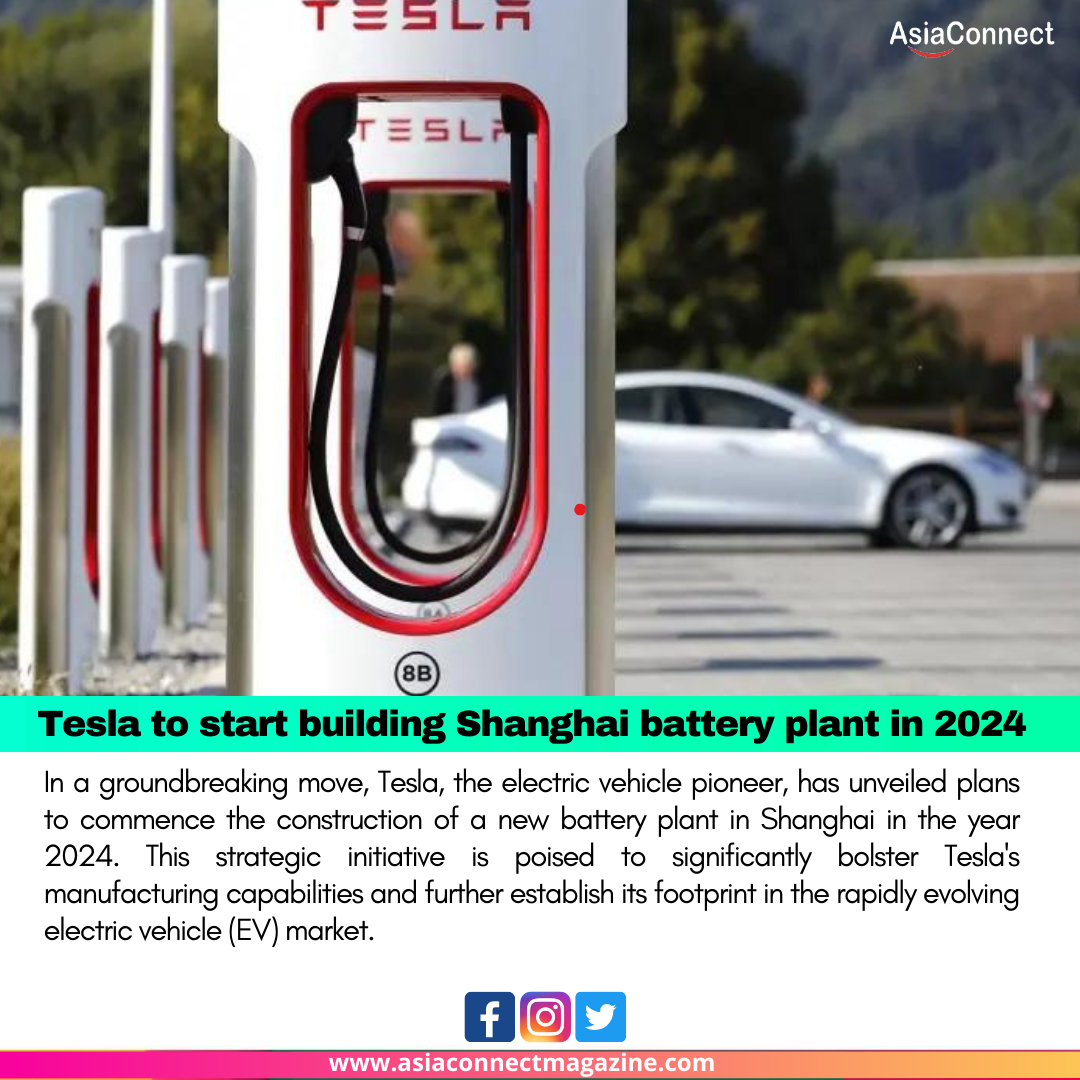In a groundbreaking move, Tesla, the electric vehicle pioneer, has unveiled plans to commence the construction of a new battery plant in Shanghai in the year 2024. This strategic initiative is poised to significantly bolster Tesla’s manufacturing capabilities and further establish its footprint in the rapidly evolving electric vehicle (EV) market.
Key Details:
- Location and Significance: The new battery plant is set to be situated in the Lingang development zone of Shanghai, a region that has become a focal point for technological and industrial advancements. The choice of location underscores Tesla’s commitment to strengthening its presence in China, the world’s largest automotive market.
- Timeline for Construction: Tesla aims to kick off the construction of the battery plant in 2024, indicating a forward-looking approach to meet the increasing demand for electric vehicles and energy storage solutions in the region. The timeline aligns with Tesla’s broader strategy of expansion and innovation.
- Strategic Importance of Battery Manufacturing: The decision to establish a dedicated battery manufacturing facility in Shanghai underscores the critical role of batteries in the electric vehicle ecosystem. By producing batteries locally, Tesla aims to streamline its supply chain, reduce costs, and enhance efficiency in meeting the growing demand for EVs.
- Technological Advancements: The new facility is expected to incorporate the latest technological advancements in battery manufacturing, potentially featuring innovations in battery chemistry, energy density, and production processes. Tesla’s focus on cutting-edge technology aligns with its reputation for pushing the boundaries of innovation in the electric vehicle industry.
- Market Dynamics in China: China has emerged as a key market for electric vehicles, driven by government incentives, environmental concerns, and a growing awareness of sustainable transportation. By establishing a battery plant in Shanghai, Tesla aims to capitalize on this burgeoning market and fortify its position as a leading player in the Chinese EV landscape.
- Impact on Tesla’s Global Supply Chain: The new battery plant in Shanghai is expected to have a notable impact on Tesla’s global supply chain. Localized battery production can reduce dependence on imports, mitigate potential supply chain disruptions, and enhance Tesla’s ability to scale production to meet the rising demand for electric vehicles worldwide.
Future Implications:
The announcement of Tesla’s battery plant in Shanghai is a strategic move that carries multifaceted implications for the electric vehicle industry and Tesla’s global standing:
- Market Leadership: By investing in local battery production, Tesla aims to solidify its position as a market leader in China and globally. This move is aligned with Tesla’s overarching strategy to stay ahead in an industry characterized by rapid advancements.
- Sustainable Practices: Localized production aligns with sustainability goals by minimizing the environmental impact associated with transportation of components. This move demonstrates Tesla’s commitment to eco-friendly practices in its manufacturing processes.
- Technological Innovation: The new battery plant is expected to be a hub for technological innovation, with potential advancements that could influence the broader electric vehicle and energy storage industries.
- Economic Impact: The construction and operation of the battery plant will likely have positive economic implications, contributing to job creation, local development, and fostering technological expertise in the region.
In conclusion, Tesla’s decision to embark on the construction of a battery plant in Shanghai in 2024 represents a pivotal moment in the company’s growth trajectory. Beyond strengthening its presence in China, this move underscores Tesla’s commitment to technological innovation, sustainability, and meeting the evolving demands of the global electric vehicle market.
Note: Information provided is based on the context available up to my last training cut-off in January 2023. Please verify with up-to-date sources.





